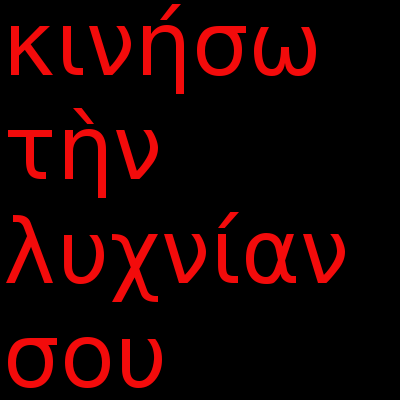Quote of the Day – Greg Boyd
Responding to a quote from Mark Driscoll:
I frankly have trouble understanding how a follower of Jesus could find himself unable to worship a guy he could “beat up” when he already crucified him.
Read the whole article, Revelation and the Violent “Prize Fighting” Jesus.



Indeed – thanks Henry.
I think Dr. Boyd’s criticism of Driscoll hits its mark (pardon pun), but I continue to have a problem with his having to undergird human pacifism with divine pacifism. I think this leads him and others (Bauckham, Caird et al) to interpret Revelation with the tail wagging the dog. For example, does the sword that comes out of Jesus’ mouth have to signify mere words? There are commentators of Revelation who point out that a Roman dagger/sword looks like a tongue. Furthermore, it is noted that Revelation could be drawing from Wisdom of Solomon where “your all-powerful word leaped from heaven, from the royal throne, into the midst of the land that was doomed, a stern warrior carrying (!) the sharp sword of your authentic command, and stood and filled all things with death…” (18:15-16). Since Jesus is called the “Word of God” in the passage that also mentions the mouth-sword, this becomes plausible. Dr. Boyd also fails to account for the image of striking down and the rod of iron (not very verbal) in the very same verse (Rev 19:15). Also, does the fact that Jesus comes to the battle with a robe dipped in blood have to mean that this is exclusively refering to his crucifixion? This verse (19:13) is prefaced with a description of Jesus as judging and waking war (19:11) so the temporal aspect which Dr. Boyd and others try to exploit is not that strong (see Isaiah 63:1-6). I just don’t see why “genre and historical context” favors Dr. Boyd’s approach when I think both work against him, and for reasons that have little to do with a too “literalistic” reading. Dr. Boyd’s response is that the author uses the genre to “turn it on its head”, which admits that the genre is not conducive to his pacifistic approach! The context could be to offer Christians a vision of justice in order for them to cope with their crises. I think Dr. Boyd would find that he doesn’t need to throw out the baby with the bathwater